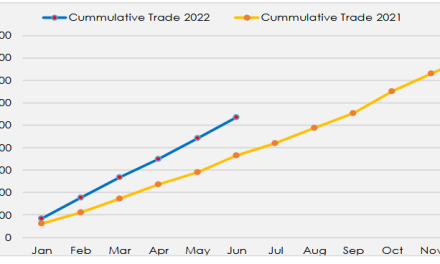
Bank Windhoek interim financials released
Performance highlights
* Headline earnings increased by 22.7% to N$306.9m
* Group total comprehensive income increased by 31.1% to N$336.8m
* Interim dividend per share increased by 26.0% to 23 cents
* Annualised return on average equity is 22.6%
Bank Windhoek Holdings Limited released its interim financial results this Friday, 14 February.
The group continued to build on its strong historical performance over the first half of the 2014 financial year, reporting profit after tax of N$319.7m, 28.3% more than the comparative period in the prior financial year. “This positive performance was achieved through good revenue growth, disciplined expense management and effective credit management”, said Christo de Vries, Managing Director of Bank Windhoek Holdings on the results.
Jaco Esterhuyse, Group Financial Controller of Bank Windhoek Holdings added that the net interest income increased by 16.8% to N$522.7m, which was mainly due to the growth in interest-earning assets of 13.8% over the comparative period. “The bank maintained low bad debt levels with the loan loss rate remaining stable at 0.10% and non-performing loans as a percentage of gross advances decreasing from 0.90% to 0.76%.
Non-interest income for the six months was 30.5% higher than the comparative period in the prior year. Excluding the contribution of Capricorn Unit Trust Management Company Limited (CUTM) acquired on 1 July 2013, the increase was 19.5%. The growth in non-interest income was primarily as a result of the increase in business volumes with the leading contributors being transactional accounts and electronic banking channels. Non-interest income represents 39.8% (2012: 37.3%) of the group operating income and covers 74.2% (2012: 71.1%) of the group’s operating expenses.
The increase in operating expenses over and above inflation was as a direct result of the inclusion of CUTM expenses, once-off listing related expenses, investments in information technology and initiatives required by regulation. The cost to income ratio improved from 54.1% at June 2013 to 53.7% at December 2013. Income from associates increased by 86.3% to N$51.8m, which contributed 16.2% (2012: 11.2%) to the group’s profit after tax.
Total assets grew by 12.9% to N$22.8bn which was mainly due to the growth in loans and advances and investments in financial assets such as government stock, treasury bills and money market investments”, said Jaco Esterhuyse.
Bank Windhoek Limited, the banking subsidiary of Bank Windhoek Holdings, announced on 12 November 2013 the approval and listing of a N$5.0bn Medium Term Note Programme on the Johannesburg and the Namibian Stock exchanges. The bank successfully listed its first bond of ZAR600m under this programme on the Johannesburg Stock Exchange on 19 November 2013. The bond issue was 2.89 times oversubscribed and is the main contributor to the increase of 100.0% in debt securities in issue.
Bank Windhoek Holdings remains well capitalised. The group’s total risk based capital adequacy ratio improved from 13.9% at December 2012 to 16.4% at December 2013; well above the Bank of Namibia minimum regulatory requirement of 10%.
“Despite the more challenging economic environment, we remain excited about the future and the opportunities available to the group. Our management approach will remain vigilant, cautious and responsible regarding the management of clients’ money and will ensure that we deliver sustainable long-term value to shareholders” said de Vries.
The group will continue to focus on the key strategic drivers identified in 2013.The strategic drivers are: Controlled asset growth; capital management; investment in technology and innovations; diversification of income streams; and focused cost efficiency programmes.











































